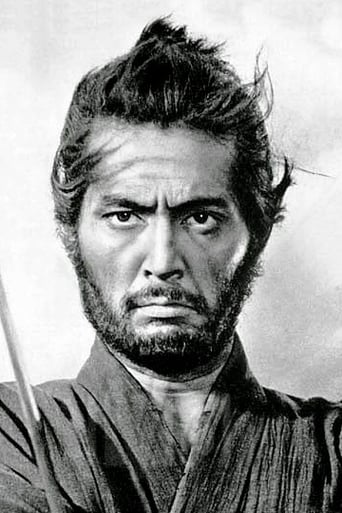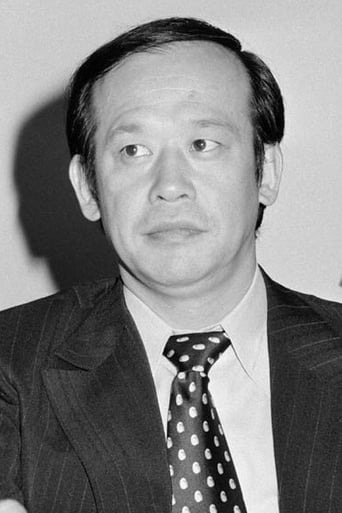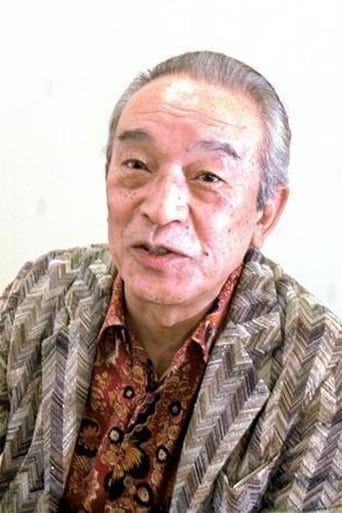imogensara_smith
INOCHI BO NI FURO means "We give our lives for nothing," and I would award the highly competitive prize for ludicrous English re-titling to the person who decided to render this as "Inn of Evil." For American lovers of Japanese cinema, however, the indignity of silly international titles pales beside the sheer difficulty of getting hold of brilliant movies by great directors. Only three of Masaki Kobayashi's films are readily available on DVD in the U.S. (I don't count THE HUMAN CONDITION, which will set you back around $300), but I was lucky enough to scrounge up a decent copy of INOCHI BO NI FURO. It's a fascinating film, as dark and intricate as its marshy, nocturnal setting, and it richly deserves to be seen.After taking muddy, visceral realism to the limit with THE HUMAN CONDITION, Kobayashi embraced traditional Japanese aesthetics; his period films combine denunciations of feudal oppression with austere formal beauty, creating a tension between explosive emotion and serene ritual. HARAKIRI (his masterpiece) and SAMURAI REBELLION have a spare, clean look, with many scenes set in white, rectilinear tatami rooms or raked-sand courtyards. INOCHI BO NI FURO is stunningly different look at the past. More than half the scenes are set at night, and the gorgeous black-and-white cinematography creates a breathable sense of place: a small island in the marshes, home to the Easy Tavern, a hideout for a band of smugglers. The camera explores the rambling, shadowy wooden building and peers through screens, wooden grilles or tall, waving reeds, visually evoking the mysterious privacy of the island, where strangers are made very unwelcome by the criminal inhabitants.Tatsuya Nakadai, Kobayashi's favorite actor and personal discovery, stars as Sadashichi, nicknamed "Sada the Indifferent," who impresses and terrifies the rest of the band with his vicious temper, ruthlessness and enigmatic gloom. With his snake-quick reflexes and knife hidden in his kimono sleeve, Sada is reminiscent of Nakadai's pistol-packing villain in YOJIMBO, but he's even more closely related to the icy, dead-eyed killer Nakadai played in SWORD OF DOOM (a runner-up in the bad re-titling sweepstakes.) But unlike either of these heartless men, Sada is vulnerable and deeply wounded: he broods over his mother, whom he lost as a child when she was sold into prostitution, and he nurtures a baby sparrow, pathetically hoping its mother will return to claim it. After he brutally stabs a policeman who comes to search the tavern for illegal goods, an incredible spasm of horror, weariness and sorrow passes over his face. When Nakadai acts he really ACTS, but he's so good he gets away with it. He's a bit flamboyant here, but just try to take your eyes off him—his serpentine grace, haunted eyes, fierce anger and monstrous sadness are mesmerizing.The proprietor of the tavern, a man with the calm face of a Buddha, sounds like an enlightened social worker when he talks about his "boys," whom he sees as emotional cripples unable to survive in society and starved for sympathy. Kobayashi the humanist makes these crude misfits (one stutters, one has tuberculosis, one is an ex-monk teased for his bisexual proclivities) much more appealing than the police who plot against them, who are nothing but cold bribe-hungry thugs. (This gets a little too obvious when the camera dwells on the swastika crests on one cop's kimono.) The film pivots on a rather implausible change of heart when the smugglers, led by Sada, decide to risk their lives to help a young fugitive who is trying to raise money to keep his fiancée from being sold to a brothel. Sada's own tortured psychology makes his sudden desire to help the young man convincing, though the eagerness of the other bandits to become do-gooders is a little hard to buy. They're basically just followers, but several other characters are well developed. Shintaro Katsu, as the only outsider allowed to drink in the tavern, spends most of the film doing a slobbering-drunk act in the background, but finally gets a chance to tell his own story, which he carries off with poignant, dignified restraint. The proprietor's daughter, a sweet girl who harbors a growing love for Sada, embodies the film's conscience in her simple belief that no one is worthless, every life is worth fighting for. The young couple taken up as a cause worth dying for are ordinary, imperfect people; the victory sought is an average, peaceful life. Most of Kobayashi's films are about resistance to authoritarian power, but the enemy here is rather selfishness and indifference, which can be defeated only through self-sacrifice.The climax comes in a spectacularly beautiful battle when an army carrying paper lanterns attacks at night; the glowing spheres flow across the dunes and float above the water like fireflies. I won't give away what happens, but ironically, despite its title, this is the only Kobayashi film I've seen which does NOT end in futility. The heroes give their lives "for nothing" in that they seek no personal gain--but not in vain.
chaos-rampant
A gang of misfits, the innkeeper and his daughter, a drunk and a wounded young man find themselves holed up inside an inn called the Easy Tavern as they wait to transport smuggled goods from a Dutch ship. It sounds like the beginning of a joke but it's anything but. It's another opportunity for Masaki Kobayashi to probe the depths of the human spirit in this period drama set in Feudal Japan.I won't go into plot specifics because part of what makes Kobayashi's movies so powerful is the experience of letting all the details slowly sink in until the final catharsis hits you like a ten ton hammer. If you've ever been left dumbfounded by the sheer emotional power of his movies, Inn of Evil will not disappoint. All his stylistic hallmarks are present. The plights of ordinary men forced to extreme measures by the corruption and oppression of the rich and powerful. Character flaws rooted in the past blocking their inner need. Emotionally scarred people in search of redemption. Long narrations that reveal character and motive. The final catharsis of people overcoming their flaws by sacrificing a part of themselves. If Kobayashi is among the most powerful film-makers in the history of movies, it's because he so perfectly understands tragedy. His movies are essentially ancient Greek tragedies with the characters themselves acting as the "deus ex machina". And it takes divine strength for them to sacrifice themselves with such selflessness.The characters and their choices and motivation follow Kobayashi's personal style. Like the drunkard (played by the great Shintaro Katsu) redeeming himself for his past foolish ambitions and greed, by giving up his savings to a young man who needs to buy his wife back from the brothel her father sold her. Were it not for the slight ending Inn of Evil would have ranked up there with Seppuku or Samurai Rebellion. The idea behind the final cathartic showdown is great (a large number of enemy soldiers with lanterns in their hands chasing the heroes in a dark field) but the realization suffers a bit. Maybe for lack of budget or shooting time, it's not as stylish or well choreographed as one would expect. The only swordfighting takes place in these final 10 minutes and it's again not very impressive, so chambara fans might wanna look elsewhere for their slice and dice fix. The print I saw was a bit too dark and muddled so it didn't help things much either. Criterion need to get their hands on this one pronto.The acting is as good as one would expect from a cast spearheaded by the brilliant Tatsuya Nakadai and Shintaro Katsu and the photography is in beautiful black and white with very nice exterior shots. The heart of the movie is what matters though and Inn of Evil comes with a great story about man's need for redemption. Strongly recommended.
Chung Mo
A black and white film from a time when most Japanese productions were color although it would be very hard to imagine this film in color. An obscure offering from a director who is known for two of the best samurai films ever, Seppuku and Samurai Rebellion. He also made the seminal Japanese ghost film, Kwaidan.Set in feudal Japan, a new police officer and his assistant are planning to take down a smuggling ring operated out of an inn on an island in a city criss-crossed with moats. No one dares enter the inn as only certain criminals are allowed in. Inside the the inn isn't a raucous non-stop party you might expect but a quiet, moody place inhabited by a small band of cynical criminals. The leader/owner of the inn is an older man assisted by his 18 year old daughter. Enter two of the criminals, one nick-named the "Disinterested" is played by Tatsuya Nakadai. The other, named the "Living Buddha", has brought in a badly beaten young man he just rescued from an inn on the mainland. The fellow gangsters are unsure of bringing in the unconscious man but the leader accepts the Living Buddha's act of mercy. Suddenly a decrepit drunk, played by Shintaro Katsu, shambles in demanding saké. They throw him out but the drunk is persistent and returns. The leader also allows him to stay. Cared for by the innkeeper's daughter and the "Living Buddha", the young man recovers and they learn that he stole money to buy back his girlfriend who was kidnapped into prostitution. Unfortunately he lost the money to a pickpocket while in an inn hence the beating. Meanwhile a representative for a rich family in the city arrives and tempts the gang with a job smuggling forbidden Dutch goods into the city. The gang has had bad experiences with this family before and they refuse. As time goes by the presence of the earnest young man starts to unravel the tough exteriors of the gang and they begin to want to help him rescue his girlfriend. And so the story unfolds.A tour-de-force of lighting and black and white cinematography. The pacing is deliberate and the story revolves around the characters instead of action. The movie leaves the confines of the inn only a few times. The ensemble cast is superb with the lead Tatsuya Nakadai delivering his usual tormented soul. The going is a little slow during the second half-hour but it picks up and holds for the rest of the film. The action finally arrives at the end and it's well done.Recommended.



